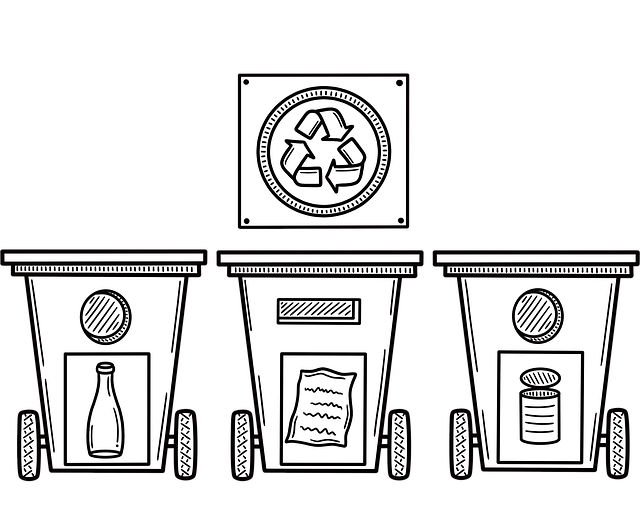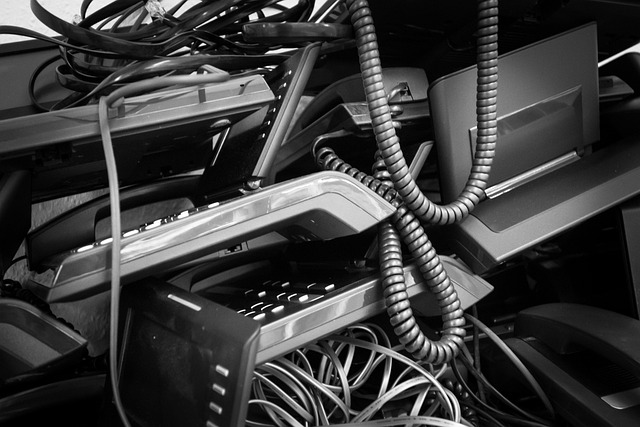New York City's rapid e-waste growth poses environmental and health challenges due to obsolete IT equipment. The city offers responsible IT asset disposal options like recycling and secure data destruction services. Boston and New York salvage companies provide data wiping, hardware dismantling, and recycling services, ensuring compliance with regulations for businesses handling sensitive data, contributing to a greener future while maintaining robust data security practices. Innovative initiatives focus on mass device destruction and computer recycling programs in NYC and MA, leading sustainable e-waste management practices that set standards for other urban centers.
In the bustling metropolis of New York City, managing electronic waste (e-waste) has become a pressing environmental concern. This article explores the intricate landscape of e-waste management, specifically focusing on IT asset disposal practices in NYC. We delve into the legal and regulatory frameworks governing responsible recycling, highlighting sustainable solutions to mitigate the growing e-waste problem. Understanding IT asset disposal methods is crucial for businesses in Boston and New York alike, as eco-conscious practices become increasingly vital.
- Understanding Electronic Waste in New York City
- IT Asset Disposal: Legal and Regulatory Frameworks
- Sustainable Solutions for E-Waste Management in NY
Understanding Electronic Waste in New York City

In New York City, electronic waste, or e-waste, is a growing concern as the city’s tech-driven landscape generates significant volumes of obsolete IT equipment. This includes everything from computers and servers to smartphones and tablets. Understanding the impact of e-waste is crucial for effective management, especially considering the environmental and health hazards associated with improper disposal. The city’s diverse IT asset disposal options range from responsible recycling programs to secure data destruction services, ensuring that valuable materials are salvaged while sensitive information remains protected.
New York’s IT equipment decommissioning guidelines emphasize the importance of secure IT disposal, particularly for businesses and organizations dealing with critical data. Many IT equipment salvage companies operating in Boston and New York offer specialized services, including data wiping, hardware dismantling, and recycling, to ensure compliance with environmental regulations. By adopting these practices, New Yorkers can contribute to a more sustainable future while mitigating the ecological footprint of their technological advancements.
IT Asset Disposal: Legal and Regulatory Frameworks

In the bustling metropolis of New York, effective IT asset disposal is more than just recycling; it’s a stringent legal and regulatory requirement. With the constant evolution of technology, businesses across the city generate vast amounts of electronic waste, or e-waste, including outdated IT equipment. The legal framework in New York City mandates that organizations ensure secure data erasure before disposing of any IT assets to protect against potential data breaches and maintain data security.
When it comes to IT asset disposal Boston NY, companies must adhere to these regulations and often seek the services of specialized IT equipment salvage companies. These professionals not only facilitate secure data erasure but also promote responsible e-waste management practices. By ensuring proper disposal, New York’s businesses can avoid legal repercussions and contribute to a more sustainable future while mitigating risks associated with data security in asset disposal.
Sustainable Solutions for E-Waste Management in NY

New York City, a bustling metropolis, faces a growing challenge with electronic waste (e-waste), but it also presents an opportunity to pioneer sustainable solutions. To address this issue, several initiatives focus on responsible IT asset disposal in NY and across Massachusetts. These efforts involve innovative methods for recycling and repurposing electronic devices, ensuring a greener future for both states.
One notable strategy is the implementation of mass electronic device destruction programs, which securely eliminate e-waste while promoting data privacy. Computer recycling initiatives NYC and similar services in MA are gaining traction, offering environmentally conscious businesses and residents an effective way to dispose of outdated electronics. By embracing these sustainable practices, New York can lead the way in responsible e-waste management, setting a standard for other urban centers to follow.
In conclusion, effective electronic waste management in New York City is paramount for a sustainable future. By understanding the unique challenges posed by e-waste and leveraging robust legal frameworks like those governing IT asset disposal in Boston, NYC can adopt more sustainable solutions. Integrating innovative practices ensures responsible recycling and proper disposal of electronic devices, minimizing environmental impact and promoting a greener metropolis.














